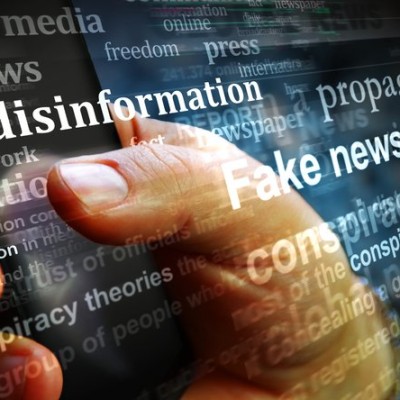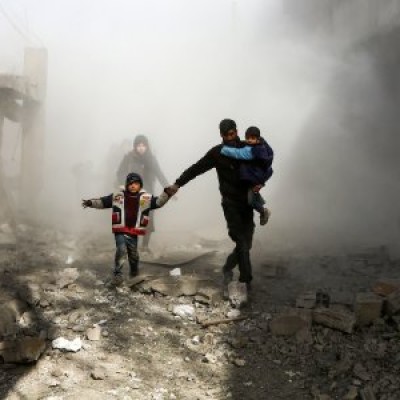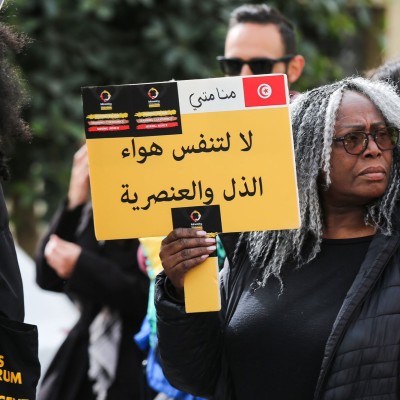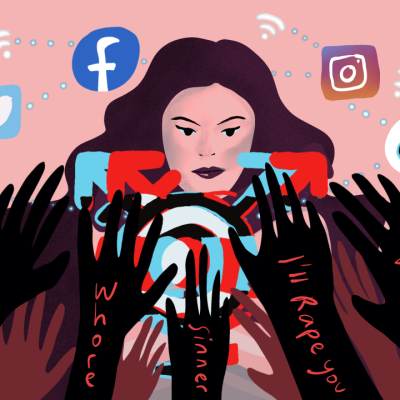Disinformation and Misinformation in Sudan: A Parallel Virtual War
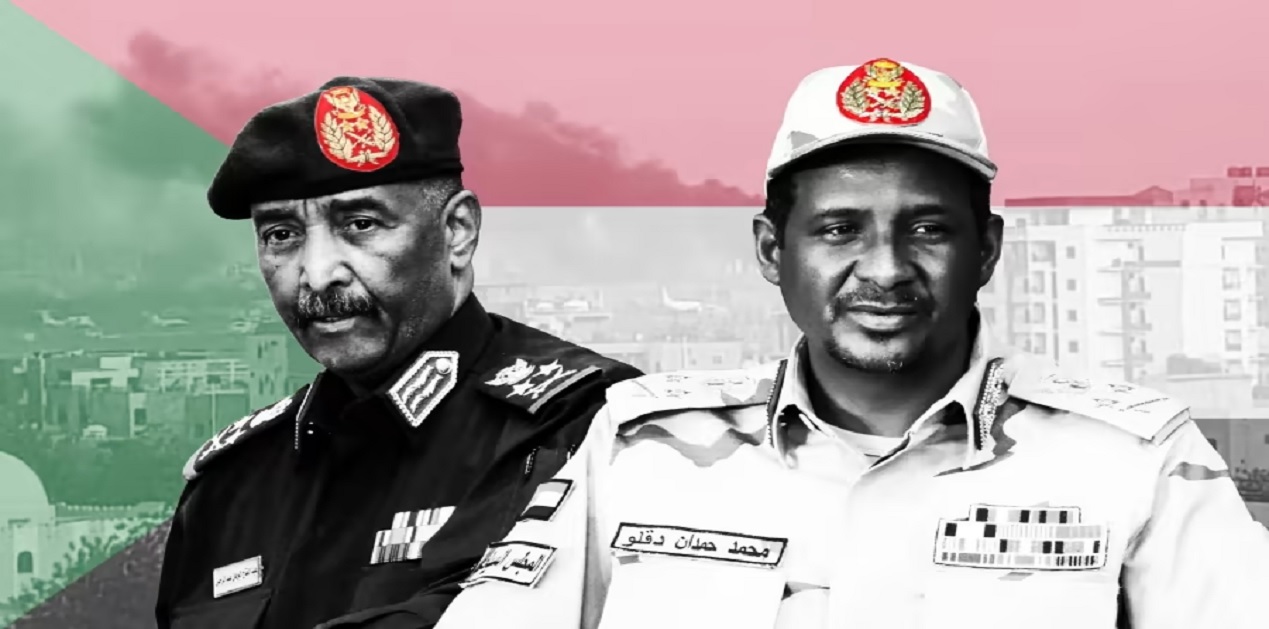
Hamid Khalafallah
The outbreak of armed conflict in Sudan on April 15th, 2023, has undermined hopes for a peaceful and democratic transition in the country. The protracted conflict between the Sudanese Armed Forces (SAF) and the paramilitary Rapid Support Forces (RSF) has killed at least 12,000 people, displaced over 7.4 million, unleashed a devastating humanitarian catastrophe and now poses a further risk of destabilizing the entire region.
Moreover, the war has taken a dangerous turn in Darfur, where it quickly escalated into a civil war with reports of ethnic cleansing. More than nine months into the conflict, the warring factions continue to fight with no plans to hold back, while none of them are able to establish a definite military advancement. Additionally, there are no prospects for an imminent political solution.
On top of the physical dangers posed by bullets and shells, a parallel war is taking place on social media platforms where Sudanese citizens are being bombarded with competing propaganda campaigns. These virtual spaces have been flooded with messages aiming to polarize people and align them with either side of the conflict.
The online disinformation and misinformation campaigns have strongly impacted the course of the war: they have exacerbated an already complex and volatile situation, made it increasingly challenging to get an idea of the situation on the ground, stoked tensions between different communities, and now risk dragging the country into a full-blown civil war.
Background on disinformation in Sudan
Internet services were first introduced in Sudan in the late 1990s; today, it is reachable in almost 90% of the country’s geographical area, but Sudan still lags in terms of internet usage, with reports showing that internet penetration is at approximately 30 per cent, with around 14 million internet users across the Sudan. Nevertheless, the internet, and particularly social media, still played a key role in Sudan in terms of shaping politics in the country, as demonstrated by the frequent internet blackouts implemented by the Sudanese authorities to limit citizens’ access to information during periods of political turmoil.
Both misinformation—often the unintentional sharing of inaccurate details due to a lack of verified sources— and disinformation—the deliberate spread of false content— are not new to Sudan and have played roles in deepening divides, perpetuating stereotypes, and undermining trust in official sources.
In particular, organized online disinformation campaigns in Sudan can be traced to the post-2019 revolution context. Following the overthrow of the regime of the National Congress Party (NCP), led by Omer al-Bashir, by a nationwide revolution in April 2019, the digital sphere became flooded with dozens of new websites. According to the Freedom House report regarding Freedom on the Internet, these websites were established as part of the Electronic Jihad Unit, affiliated with the NCP. The unit was part of the security service and mainly aimed at monitoring digital spheres and managing online propaganda campaigns. The report also highlights that the unit operates from offices in Sudan, as well as Qatar and Turkey.
In the weeks leading up to the military coup in Sudan in October 2021, a systematic campaign was organized on Sudanese social media, flooding it with rumors and disinformation about political and security issues. An analysis conducted by Beam Reports outlined at least 20 propaganda campaigns that circulated on social media in the weeks before the coup that included either fabricated or misleading news. They were meant to mislead public opinion and disseminate disinformation for the purpose of testing public opinion and monitoring potential reactions. The analysis shows that various actors have engaged in perpetuating these campaigns, including the NCP, SAF and RSF.
Moreover, in the weeks preceding the start of the conflict in April 2023, NCP figures disseminated disinformation campaigns on social media, where they fueled tensions between SAF and RSF and openly called for ‘armed action.’ As will be illustrated below, these campaigns continued after the war erupted.
A War of Narratives
As is the way with modern conflicts, social media is also a part of the battleground, transforming into a hotbed of misinformation and disinformation. The war in Sudan is not an exception, as it is spawning contradicting propaganda from both warring factions. In parallel to fighting on the ground, SAF and RSF have engaged in a more subtle and nuanced virtual war on social media and traditional media platforms. In an effort to win hearts and minds, the violence on the ground has been accompanied by a deluge of disinformation flooding Sudan’s digital public sphere. Both warring sides have increased the volume of photos, videos, interviews and statements being circulated by their representatives and social media accounts, in what is obviously an attempt to polish their images and whitewash their role in derailing Sudan’s transition to democracy. Reports have shown that the RSF and SAF have extended networks engaging their respective campaigns, both internally and externally (with the latter including Russia, the United Arab Emirates, Egypt and Ethiopia).
Both the RSF and the SAF are attempting to present themselves as guarantors of stability and defenders of democracy and civilian rule. However, the way they portray this narrative differs. The RSF depict themselves as fighting against the Islamists who are associated with the NCP and who have allegedly hijacked the SAF. They claim to be the guardians of democratic rule in Sudan. On the other hand, SAF (supported by NCP associates) claims to be protecting the unity and stability of the Sudanese state, and fighting against the “mutiny” of the RSF. These competing narratives by the warring factions, in addition to the NCP, are being utilized by these actors to manipulate and control public opinion, as well as advance their respective agendas.
The RSF’s propaganda and disinformation campaigns are noticeable across all social media platforms, given the RSF’s digital prowess. The RSF heavily relies on X (formerly Twitter), where it spreads its agenda, targeting both local and international actors. The RSF account has published daily statements and footage for the past month, claiming victories here and there, as well as attempting to rebrand the paramilitary outfit as a pro-democracy group committed to the principles of peace, freedom and justice. They have also been consistent in posting content in English, indicating the paramilitary’s strategy of trying to appeal to Western audiences and the international community in general. In addition to their official accounts, the RSF have been accused of hijacking at least 900 dormant X accounts to disseminate their propaganda and disinformation campaigns. The RSF has also formerly utilized Facebook as one of its disinformation platforms, until its accounts got removed in August 2023 for violating Facebook’s Dangerous Organizations and Individuals policy. Facebook has previously removed 943 fake accounts that amplified RSF statements by pretending to be Sudanese news outlets.
The SAF’s utilization of social media platforms for disinformation, on the other hand, is relatively limited. They mainly use X to refute RSF narratives and boost army morale with false claims of victory. The SAF have also been accused of using bots and trolls to boost its own disinformation: Valent Projects examined 12,545 tweets using a pro-SAF hashtag, and found out that the top 5% of the account have classic indicators of bot/troll activity, including generic account names, mass posting and account registration around the time of the 2019 revolution. They also suggested that only 10% of the examined tweets seemed to be by authentic accounts supporting the SAF. Valet Projects report claimed that the pro-SAF tweets showed large-scale manipulation to mislead Sudanese and international observers into thinking there is wide support for SAF escalation; meanwhile, authentic Sudanese voices have been calling for an end to the violence. Nevertheless, the SAF still mainly relies on traditional media, including the government-owned and operated National Broadcasting Corporation (radio and television). The SAF also has a great influence on the privately owned Sudan News Agency (SUNA), which has been publishing pro-SAF narratives.
As stated above, the RSF’s usage of social is remarkably more advanced than SAF. This predates the current war and has been the case for a couple of years, as the RSF have been heavily investing in developing their social media presence. This is part of a continuous broader public relations campaign that aims to rebrand the RSF and whitewash their involvement in atrocities and human rights violations. Various reports have documented how the RSF have been hiring international communications and public relations firms to assist them in polishing their image through dangerous misinformation. These contracts included firms in Canada, France and the UAE. Furthermore, RSF campaigns have shown clarity and consistency, which allowed them to build stronger narratives. In contrast, SAF’s messaging has been rather contradictory and confusing, which has made it less effective in shaping public opinion.
Furthermore, the NCP members, or the Islamists, have also increased their propaganda since the eruption of the war. A report by the Sudan Conflict Monitor suggests that NCP-affiliated accounts are using a coordinated social media script to incite hatred and sow divisions. Generally, their narrative is in support of SAF and against RSF. Moreover, they have been coordinating campaigns against political leaders and civilian groups, accusing them of colluding with the RSF in attacking the SAF and attempting to take power. They have also described all actors taking a neutral stance and calling for the end of the war as traitors. More dangerously, their propaganda and disinformation campaigns have been advocating for the SAF to recruit jihadists and not partake in peace talks with the RSF. In order to further perpetrate their disinformation campaigns, NCP social media accounts published a list of “trusted sources” who are mostly SAF or NCP affiliated, asking the Sudanese public to rely on them for news.
Three trends can be observed among the disinformation campaigns propagated by the aforementioned actors:
- Anti-SAF and/or pro-RSF campaigns that spread fake news and statements about SAF and its leadership, and disseminate support for the RSF. The main narratives pushed by these campaigns focused on fabricating SAF losses and claiming RSF victories, as well as denying the RSF’s involvement in atrocities and blaming the SAF for it. These campaigns also claimed societal support for the RSF in their battle against the allies of the former regime.
- Anti-RSF and/or pro-SAF campaigns that target RSF leaders and their troops and fabricate SAF victories. The Pro-SAF narratives continue to claim fake victories, such as the SAF’s Commander in Chief stating in April that the fighting would be over within a few hours and that it was only a matter of cleaning up what remained of RSF fighters. Another key message they pushed was claiming that all human rights violations were exclusively committed by the RSF. Also, SAF allies, including officials and journalists, consistently fabricated news about the death of RSF leader Mohamed Hamdan Dagalo, or Hemedti.
- Anti-civilian groups and politicians’ campaigns that attacked civilians and their initiatives to end the war. The main message behind these campaigns was labelling these civilian groups and leaders as traitors who are conspiring to benefit foreign countries, and claiming that their peace initiatives are acts of treason. The campaigns also accused civilian groups of supporting one of the warring factions over the other (mostly RSF).
Just throughout the months of August and September, Beam Reports published reports that counted at least 45 disinformation campaigns, classified as either fake or misleading news. The most popular method consisted of fabricating statements by different actors to serve their respective agendas; these campaigns were also observed to peak around the announcement of political initiatives or peace talks, proving the intentionality and the scale of these disinformation campaigns.
Impact of the disinformation campaigns
In the aftermath of the conflict’s outbreak in Sudan, the disinformation campaigns polarized Sudanese society in an unprecedented way . Moreover, they have posed serious dangers and put millions of vulnerable lives at risk. During times of conflict or displacement, those seeking to flee areas affected by the conflict tend to turn to social media for up-to-date guidance and resources, only to find fake accounts that exploit their panic and mislead them. When trying to access necessities like food, water and medication, Sudanese citizens caught in the crossfire have often relied on information from official sources on social media as a lifeline. The disinformation campaigns have compromised these resources. Various citizens have reported that they planned their movements in conflict-affected areas according to information online, only to find that it was part of the disinformation campaign, ultimately endangering their lives.
The dangerous online disinformation campaigns in Sudan are spreading rapidly in the absence of independent reporting to counter it. Journalists have been struggling to report from the ground, particularly in conflict epicenters, given the high security risks and limited access to internet and electricity. Additionally, the SAF’s captivation of the state’s media platforms and its usage of them for pro-SAF propaganda have extremely affected citizens' trust in the state’s institutions. With limited independent media coverage and compromised official media reporting, citizens are left with no options but to turn to propaganda-filled social media platforms.
Finally, the continuation of the virtual war on social media threatens to hinder efforts to find a peaceful resolution. Such disinformation campaigns have been standing in the way of any peace initiatives. For instance, a report by the Arabi Facts Hub analyzed a trending hashtag that was propagated by pro-SAF accounts stating that a truce is an act of treason, creating a public opinion against a ceasefire agreement between SAF and RSF. Hence, countering this trend is crucial. Although there are some initiatives to fact-check news and combat misinformation and disinformation, their impact is rather limited. Such endeavors necessitate rigorous fact-checking mechanisms that require international collaboration to expose and combat the deliberate spread of deceitful information, as well as accountability mechanisms for social media companies that allow such campaigns on their platforms. This would foster a more informed and discerning society amidst the turmoil. One example of such actions is Facebook removing the RSF pages from their platforms, yet much more needs to be done to counter the ongoing misinformation and disinformation war.
Conclusion
To sum up, the outbreak of armed conflict in Sudan has unleashed devastating physical violence and humanitarian crises, described as one of the fastest growing crises in the world currently and the worst that Sudan has ever seen. Moreover, it has sparked a dangerous parallel war of disinformation and propaganda campaigns spreading across social media. Both of the warring factions, the SAF and RSF, have engaged in widespread disinformation efforts to shape domestic and international opinions to their advantage. Additionally, associates of the former NCP regime continue to perpetuate divisive narratives online. These deliberate campaigns have polarized Sudanese citizens, exacerbated tensions, and endangered vulnerable communities; they threaten to damage the Sudanese social fabric beyond repair. With limited independent reporting, citizens increasingly turn to these propaganda-filled platforms, which also creates a fertile environment for the spread of unchecked misinformation. Thus, countering disinformation and misinformation is crucial through rigorous fact-checking mechanisms, international collaboration, and holding the actors involved in it to account. Exposing and combating the spread of deceitful propaganda can help foster a more informed society in Sudan amidst the turmoil. This must be an integral part of initiatives aiming to end the war in Sudan, as tackling the virtual war is key to paving the path to peace.
